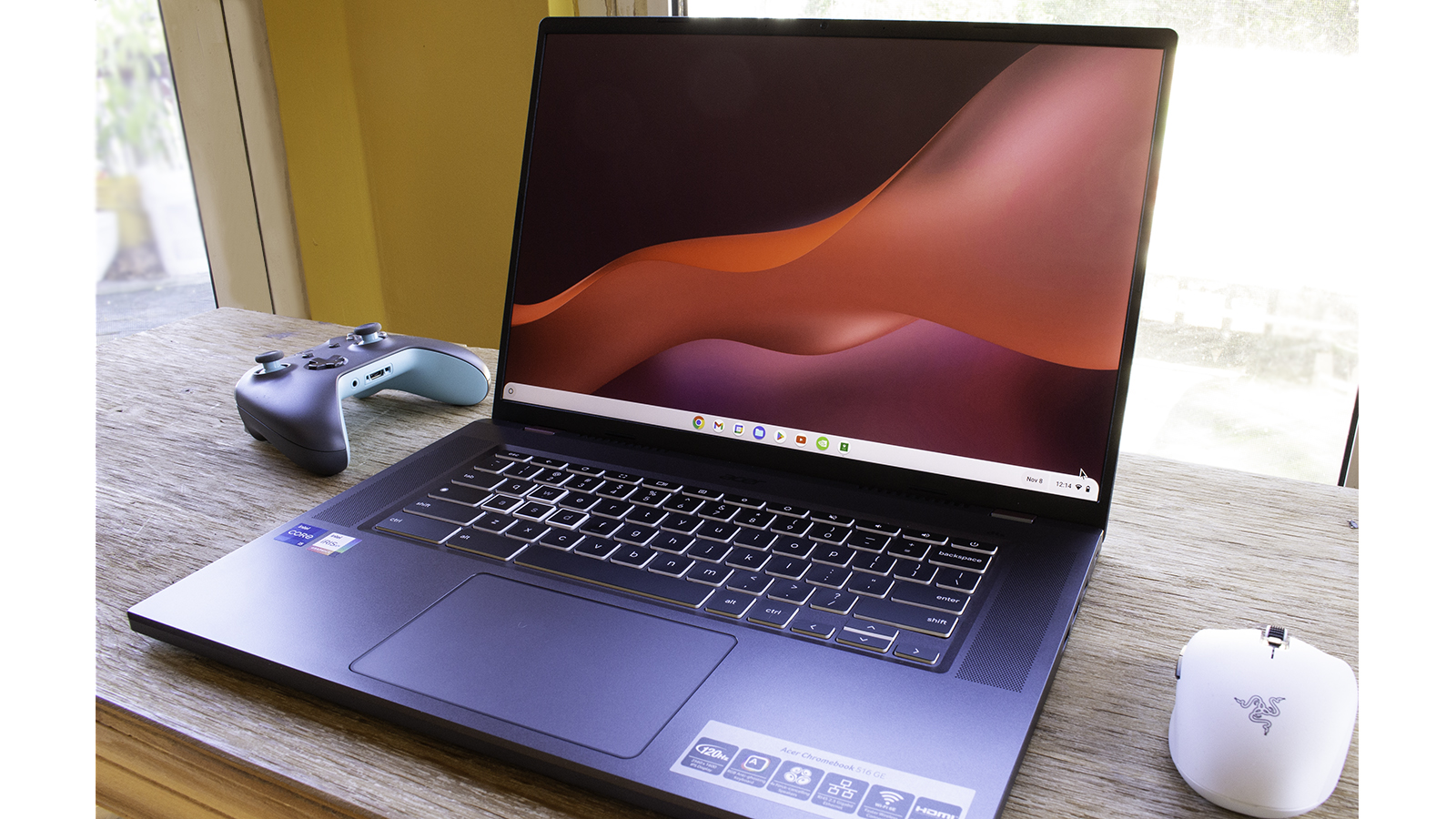'ZDNET Recommends': What exactly does it mean?
ZDNET's recommendations are based on many hours of testing, research, and comparison shopping. We gather data from the best available sources, including vendor and retailer listings as well as other relevant and independent reviews sites. And we pore over customer reviews to find out what matters to real people who already own and use the products and services we’re assessing.
When you click through from our site to a retailer and buy a product or service, we may earn affiliate commissions. This helps support our work, but does not affect what we cover or how, and it does not affect the price you pay. Neither ZDNET nor the author are compensated for these independent reviews. Indeed, we follow strict guidelines that ensure our editorial content is never influenced by advertisers.
ZDNET's editorial team writes on behalf of you, our reader. Our goal is to deliver the most accurate information and the most knowledgeable advice possible in order to help you make smarter buying decisions on tech gear and a wide array of products and services. Our editors thoroughly review and fact-check every article to ensure that our content meets the highest standards. If we have made an error or published misleading information, we will correct or clarify the article. If you see inaccuracies in our content, please report the mistake via this form.
Acer Chromebook 516 GE review: As good as cloud gaming gets


Acer Chromebook 516 GE
pros and cons
- Buttery-smooth performance
- Gorgeous 120Hz display
- Subtle gamer aesthetics
- Keyboard backlighting is underwhelming
- On the thick side
- Charger feels a little dated
When Chromebooks first arrived, it took a while for everyone to understand a device that does nearly everything a traditional laptop could via cloud-based storage and services.
ZDNET Recommends
Now, Chromebooks are integral to the lives of millions of students and professionals.
Google and a few partners (including Acer) have now decided to see if they can use the same reliance on cloud-based services to create Chromebooks for gaming.
Services like Nvidia's GeForce Now and Microsoft's Xbox Game Pass make this possible by shifting the heavy lifting to a remote server.
Acer's Chromebook 516 GE aims to be the ideal device for those cloud services by providing inexpensive hardware and excellent connectivity (Wi-Fi 6E, 2.5G Ethernet) for communicating with those servers. I found it to be one of the best ways to start cloud gaming at its price point but ran into lingering growing pains that some cloud gaming services still haven't entirely worked out. Read on to decide if those hiccups are a deal breaker for you or if you've found one of the cheapest ways to experience high-end gaming.
Also: The 5 best Chromebooks for students
Specifications
| Processor | Intel Core i5-1240p running at 1.7GHz (4.4GHz Turbo Boost) |
|---|---|
| Display | 16-inch, 120Hz IPS panel running at 2560x1440 |
| Memory | 8GB DDR4 |
| Storage | 256GB PCIe Gen3 NVME SSD |
| Webcam | 1080p, 60FPS |
| Battery | 65Wh rated at up to 9 hours |
| Connectivity | Wi-Fi 6E, 2.5G Ethernet, Bluetooth 5.2 |
| Ports | 2 x USB-C 3.2 Gen 2 (supporting DisplayPort over USB-C), 1 x USB-A 3.2 Gen 2, 1 x HDMI, 1 x Ethernet, 1 x 3.5mm combo audio port |
| Dimensions and weight | 356.58 (W) x 249.67 (D) x 21.3 (H) mm (14.04 x 9.83 x 0.84 inches) | 3.75lbs |
Build and ports
The exterior doesn't scream "gamer," but the rainbow effect on the Acer logo is a nice nod to the Chromebook's entertainment-focused purpose.
When unboxing the Chromebook 516 GE, I muttered, "You're a big boy..." Yes, I talk to review units sometimes. It is thick compared with most Chromebooks. That extra space is needed for its high-end hardware and the cooling it requires.
Still, it feels light for its size, but never flimsy or cheap. In fact, it's one of the sturdiest Chromebooks I've used. It's nice to know your purchase price is buying a well-made, solid product, as well as one geared toward gaming.
The WASD cluster is highlighted by a white border, while the whole keyboard features RGB backlighting.
Using the included keyboard and touchpad were both a pleasure, with good tactility on both. The backlight on the keyboard was a bit disappointing, however. Not only was it difficult to find and change the backlighting settings, but it was dim, even at what I believe was maximum brightness. That said, it still provided a nice bit of accent lighting in darker rooms.
Also: The best gaming keyboards: All the hits and clicks
The left side (top) includes a USB-C, Ethernet, and 3.5mm combo port, while the right (bottom) includes a USB-A, HDMI, and USB-C port, as well as a Kensington lock hole.
The port selection on the Chromebook 516 GE puts most high-end laptops to shame. The USB-A and two USB-C ports mean any combination of mice, keyboards, headsets, or other gaming peripherals are covered, while the HDMI port and DisplayPort over USB-C support mean you've got numerous ways to game on external displays and TVs.
Perhaps most important of all is the inclusion of a 2.5G Ethernet port. This I/O, which was skipped in some other first-gen gaming Chromebooks, proved vital in my testing. Ultimately, cloud-based gaming performance is all about the quality of your connection. If you have the option for a wired Ethernet connection, it still provides the best experience.
The included charger is on the large side for a Chromebook power supply.
While everything else about the Chromebook felt premium, the charger was contrastingly generic. It did its job of topping up the 65Wh, 9-hour battery well and quickly, but it's larger than you'd expect, and looked a bit dated compared with most other high-end Chromebook models. I opted to use a more compact 140W entry in the Ugreen GaN charger line during most of my testing.
Performance
The Chromebook 516 GE makes the dream of truly portable, completely AA gaming feel oh so very close.
I'll get the boring part out of the way first. The Chromebook 516 GE is an excellent productivity device. Its 16-inch, 16:10 display provides ample space to get work done. The pixel density and smooth 120Hz refresh rate also make even mundane tasks look great. Essentially, it's one of the best-performing Chromebooks I've ever tested. But you're not buying something this big and powerful to noodle around in Google Docs, so let's get to the real reason we're here: gaming performance.
Nvidia GeForce Now running on the Chromebook 516 GE.
Acer optimized the Chromebook 516 GE for Nvidia's GeForce Now cloud-based gaming service, and it showed in my testing. The combination of this machine and Nvidia's service was the closest thing I've experienced to local gaming while using a cloud service.
That isn't to say everything was perfect. Some games stuttered occasionally, or showed other oddities in their graphical performance. But, I experienced almost none of the lag, artifacting, frame tearing, or other annoying drawbacks that make many cloud gaming sessions miserable.
I'd feel entirely comfortable playing any single-player game this way, even fast-paced, graphics-heavy ones like Cyberpunk 2077, which I thoroughly enjoyed on this setup. Multiplayer games were a more conditional win. While my testing of games like Apex Legends showed the best performance I've seen via cloud services, they still couldn't exactly match locally installed equivalents. Let me show you why...
Above is a basic latency test I performed by capturing slow-motion videos of my mouse or controller and the onscreen action. Ideally, when I press the controller trigger or mouse button, the guns onscreen should fire instantly. While even ultrapremium gaming PCs still experience imperceptible amounts of latency, the Chromebook 516 GE running Apex Legends over GeForce Now showed a perceptible delay.
Also: The 6 best gaming monitors: Prepare for a world of hertz
The best analog I could provide is the difference between playing a first-person shooter with very low latency (10 to 30 ms), versus paying that game with higher latency (75-plus ms). You may not even be able to put your finger on what feels different, but something feels a little... off.
All that said, I'd have no qualms dropping into a casual game of Apex on this machine. I still found the game highly enjoyable and totally playable. I just wouldn't stake your Apex Predator ranking on it.
Xbox Game Pass running on the Chromebook 516 GE.
Unfortunately, things weren't as rosy for Xbox Cloud Gaming. To be fair, this service is still marked as being in beta, so it may improve. But for now, it wasn't great.
You can see the more marked delay in the demo video above (starting at 0:56). Everything felt more delayed than with GeForce now, especially in first-person shooter games like Halo Infinite and Fortnite. I found myself frustrated by this delay all the more because it was very variable, and downright game-breaking at times.
To be clear, my testing was done via Ethernet and a dedicated 100Mbps broadband connection. There are faster broadband tiers in many homes, but the reality is that 100Mbps of unadulterated access is more than you're likely to achieve in the multidevice households where this Chromebook will live. In short, the conditions were ideal for success.
Also: Slow internet at home? This adapter can turn your unused coaxial cable into Ethernet
Less twitchy games like Forza Horizon 5 were still enjoyable, as well retro titles, slower-paced games, and titles with simpler graphics. Still, I can't recommend buying this Chromebook specifically for Xbox Game Pass. That's a fault I'd place squarely in Microsoft's lap, not Acer's, to be clear.
Hopefully future updates will bring the performance of Xbox cloud gaming closer to GeForce Now. Game Pass' library of titles is just too good to be held back by a frustrating end user experience.
Bottom line
You're looking at pretty much all you need for a very compelling gaming experience.
Just like all Chromebooks, gaming Chromebooks live or die on the quality of cloud-based services. When they work well, as GeForce Now did thanks to Acer's optimization, they're a massive money saver and convenience. But, when you start running to laggy, uneven performance, like what Xbox Cloud Gaming provided, you might begin wishing you'd spent the extra cash on a Windows-based gaming laptop and local games.
Also: Level up with the best gaming laptop deals
The saving grace here is that Acer and Nvidia have proven that cloud-based gaming is at the point where relatively inexpensive devices, like a high-end Chromebook, can compete with $1,000-plus machines, at least for just about everyone aside from ultra-competitive, first-person shooter fans. Now we just have to see how long it takes everyone else to catch up or surpass them.
Alternatives to consider
Lenovo's entry in the launch lineup of first-gen gaming Chromebooks was a more budget-friendly device, providing an even cheaper entry point. Of course the reduce price comes with some compromises. While you'll still get a 120Hz display, Core i5 CPU, and Wi-Fi 6E, you'll be skipping an Ethernet port. Look for a full review of this model on ZDNET soon.
On the opposite end of the pricing spectrum is Asus' take on this new genre. The unit includes a Core i5 CPU one generation older than the other two, and a lower-resolution display, but it's the only one of the first-gen units to include a touchscreen, opening a whole world of touch-based Android titles available via ChromeOS.
Perhaps an odd fit as an alternative, but Valve's Steam Deck is a different take on portable gaming's future. It can work with cloud services like GeForce Now and Xbox Game Pass, but it also supports local installation of games that have been approved for it, like Apex Legends and Elden Ring.